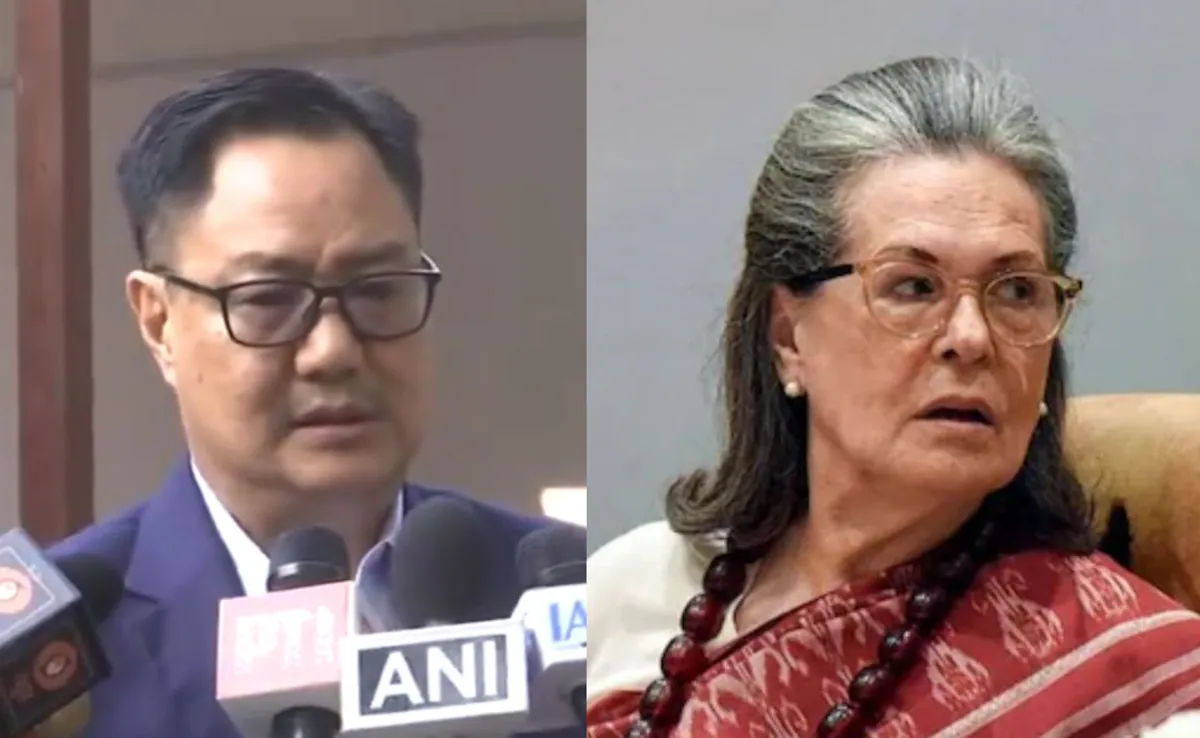Union Minister Kiren Rijiju recently stirred controversy by highlighting what he called “serious” connections between Sonia Gandhi, former Congress president, and billionaire philanthropist George Soros. Rijiju’s remarks come in response to Sonia Gandhi’s op-ed in The Hindu, where she accused the Modi-led BJP government of systematically eroding India’s democratic fabric and manipulating key institutions like the judiciary, legislature, and executive. Her statements, Rijiju claimed, lacked credibility and were an attempt to mislead the public.
The Background of the Allegations
Rijiju criticized Gandhi’s article as an attempt to undermine the government, suggesting that Congress had no moral authority to lecture on democracy. His accusations of connections to Soros align with a broader narrative within the BJP that labels the billionaire as a destabilizing influence on Indian politics. Soros has previously spoken critically of Prime Minister Narendra Modi, particularly on controversial topics like the Adani Group and India’s approach to minority rights.
In his speech earlier this year, Soros expressed hope that the allegations against the Adani Group would weaken Modi’s grip on power, a statement the BJP interpreted as interference in India’s internal affairs. Rijiju’s statement attempts to tie Soros’s alleged agenda to Congress, furthering a narrative that paints external influences as anti-India.
Sonia Gandhi’s Op-Ed
In her article, Sonia Gandhi accused the Modi government of “misusing every power at its disposal” to intimidate opponents and control democratic institutions. She wrote that the upcoming elections would be critical for preserving India’s democratic values. Gandhi also reiterated Congress’s commitment to safeguarding the Constitution and working with like-minded political parties to ensure fair governance.
Her statements drew sharp criticism from BJP leaders, including Rijiju, who called them a reflection of Congress’s desperation. He also accused the party of lacking internal democracy and being driven by a “coterie of sycophants.”
BJP’s Counterarguments
Rijiju and other BJP leaders, including Education Minister Dharmendra Pradhan, argued that Sonia Gandhi’s claims were baseless. They stated that the Modi government had strengthened democracy by empowering citizens and making India a global leader. They also accused Congress of engaging in what they called “Modi hatred,” using personal attacks against the Prime Minister to stay politically relevant.
Rijiju further asserted that India’s democracy was flourishing under Modi’s leadership, citing initiatives aimed at grassroots development and public welfare. He accused Congress of fabricating crises to divert attention from its declining political relevance.
The George Soros Connection
Soros is often a polarizing figure, known for funding liberal and pro-democracy causes worldwide. However, his involvement in Indian politics, even indirectly, has become a contentious issue. BJP leaders claim that Soros’s interests align with those seeking to destabilize the Modi government. By associating Sonia Gandhi with Soros, Rijiju aimed to question Congress’s intentions and its broader agenda.
Political Implications
The exchange between Rijiju and Sonia Gandhi underscores the growing polarization in Indian politics. As the nation gears up for key elections, such statements are likely to influence public perception and political narratives. Congress, on one hand, seeks to portray itself as a defender of democratic values, while the BJP positions itself as a protector of national interests against both internal and external threats.
Public and Media Reactions
The allegations have sparked significant debate on social media and in the press. Supporters of the BJP view Rijiju’s remarks as exposing hidden agendas, while Congress loyalists dismiss them as baseless propaganda. Independent analysts suggest that the BJP’s focus on figures like Soros is part of a broader strategy to consolidate its nationalist voter base.
Conclusion
As political tensions rise in the lead-up to elections, the war of words between Sonia Gandhi and Kiren Rijiju reflects deeper ideological divisions in Indian politics. The allegations about connections to George Soros add a new layer of complexity to the debate, raising questions about the influence of international players in shaping India’s political landscape. Regardless of the truth behind these claims, they have successfully captured public attention and will likely remain a talking point in the days to come.
For the latest updates and comprehensive information about the Politics, visit Best Today News for reliable and up-to-date coverage!



